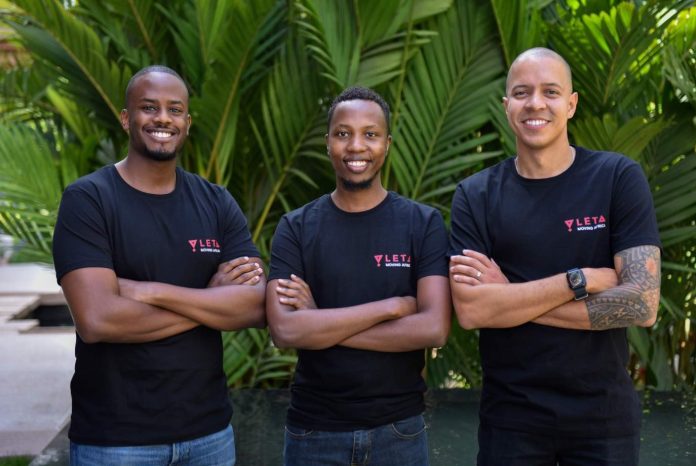Leta AI, with $3 million in its hand, is building supply chain and logistics software to enable the efficient and automated movement of goods in Africa.
Founded in New York and built in Nairobi, Leta, is a Kenyan B2B supply chain and logistics SaaS provider promising to optimize fleet management via its proprietary route and load optimization technology which brings efficiency and cost savings in the logistics sector in Kenya, Tanzania, Uganda, Zambia and Zimbabwe.
With plans to work with distributors and e-commerce players in Ghana, and later Nigeria, Leta aims to be an operating system for logistics in Africa by showing distributors the most efficient route to serve the customers quicker, use less cars in the fleet, reduce number of trips among others.
Leta founder and CEO, Nick Joshi started the venture after a two-year stint as the VP of product at Delivery.com in the U.S., where he saw the marketplace gain last-mile efficiency in over 35 states. The experience inspired him to want to tackle the delivery problems in other markets especially Africa.
Leta allows a user to track a truck and its driver, the quantity of goods carried and the time spent on the journey using metrics such as speed, braking and idle time. The driver app has destination, any stops expected on the way and a sign-off form for proof of delivery. Customers have a web link to track the delivery of their orders.
Since launch, Leta has signed up over 20 major businesses such as pan-African fast-food giant Simbisa Brands, Chandaria Industries, Twiga, and ShopZetu among others. The platform has also optimized over 500,000 deliveries, delivered more than 20,000 tons of goods and managed 2,000 vehicles.
“At the heart of logistics are people,” said Joshi. “People are the final destination of every supply chain. And if you can’t reach people reliably, you’re out of business. But logistics is difficult, and I’ve experienced that firsthand. As the Vice President of Product at Delivery.com, we operated in 35 states, made 10,000 deliveries a day for 25,000 merchants and with 5,000 drivers and dispatchers across the United States. But our biggest barrier to expansion was last-mile distribution. And it’s even harder in Africa.”
So after a decade building startups in the US, Joshi came back to Kenya and among the first people he caught up with was Peter Njonjo, CEO of Twiga Foods, then Darshan Chandaria (Group CEO of Chandaria Group) and Leighton Shaw (Executive Director of Simbisa Brands), who had the same problems as many people across Africa live in hard-to-reach places with poor infrastructure, which drives up the cost of goods and for businesses, logistics is fragmented, manual, and expensive.
Logistics in Africa is still a manual process and most African companies are still using manual pen and paper systems to move goods. Also Africa has poor infrastructure which increases transportation costs, lead times, and complexities in managing supply chains and there is no proper logistics data therefore most companies are in the dark about which products to sell, which routes to take, and how to save money on their logistics.
Joshi adds that he built Leta to help companies move goods efficiently while giving them data and insights to grow by leveraging AI technology, to help companies track and optimize their deliveries and move goods across the continent. To date, the firm has powered over 1 million deliveries for industry leaders like Chandaria, Twiga, and Simbisa Brands (behind Pizza Inn, Chicken Inn, and Galitos).

